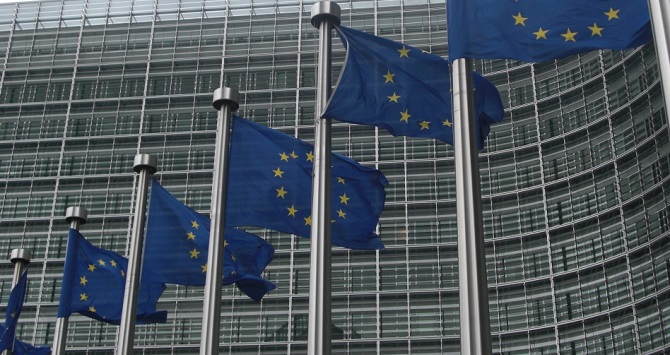 2018 will be the year in which liberal democracies are forced to confront misinformation, predicts Damian Tambini. Emmanuel Macron has already proposed a crackdown on fake news during election campaigns. This will blow open the fundamental tensions between freedom of speech and the accountability of Facebook and Google. It means regulation, and the rethinking of a system that evolved to accommodate print and then broadcast media – and it demands a systemic view, which will take longer than a year to develop.
2018 will be the year in which liberal democracies are forced to confront misinformation, predicts Damian Tambini. Emmanuel Macron has already proposed a crackdown on fake news during election campaigns. This will blow open the fundamental tensions between freedom of speech and the accountability of Facebook and Google. It means regulation, and the rethinking of a system that evolved to accommodate print and then broadcast media – and it demands a systemic view, which will take longer than a year to develop.
In December, I gave an interview to a journalist from the Press Association who was squirrelling away stories for the winter hibernation. I made a number of comments about what 2018 would bring for Facebook, Google and other powerful internet intermediaries, and about my personal views on fake news. In the Christmas news void, this interview was widely reported, including in the Sun newspaper (to which I am eternally grateful, since it described me as a “top academic”).
Since the newspaper apparently thought my comments were a “blast” and others reported that I said 2018 would be the ‘beginning of the end’ for these internet giants, which might well be causing them sleepless nights, I had better explain what I meant.
2018 will be the year in which intermediary liability, and the fundamental deal on ‘internet freedom’ is reopened. This will not be a straightforward debate: fundamentally it is about information sovereignty, and engages unresolved issues relating to the balance between state and private regulation of speech, and the role of regional courts such as the ECJ and the ECtHR that are in tension with national authorities.
The question of the balance between the freedom and accountability of these powerful companies arises in many areas. The manoeuvre of delegating co-regulatory responsibility for censorship functions to the platforms has now been carried out in relation to intellectual property, child abuse, hate speech and a range of other areas. The reason that fake news is such a difficult area is that it is not illegal, and because political speech has traditionally been seen as worthy of high levels of free speech protection.

The issue of fake news during elections is existential for liberal democracies. Events of 2016 and 2017 have raised questions about the legitimacy of elections, given the potential for deliberate mass manipulation of opinion (or even the perception of it). In most parts of the Europe, this has led to proposals for legislation on fake news. This week Emmanuel Macron proposed a new French law introducing penalties for posting and distributing fake news. Interestingly, the French law is restricted to election periods: because the outcomes of elections and referendums tend to be irreversible, deliberate manipulation can be outlawed, particularly if it is too close to election to be challenged by ‘more speech’.
For Macron, this is personal. During his 2017 election campaign Facebook removed thousands of fake profiles that were disseminating news against his campaign. He presumably wants a system which is clearer, fairer and benefits from transparency and due process of law. His proposal is perhaps more radical than has been reported: in his speech he said that if a judge confirmed deliberate propagation of fake news, penalties would include de-referencing and blocking the offending website. While the details have yet to be released, this means regulation of Facebook and Google. It means a departure from the current deal on internet liability.
The global infrastructure of international organisations such as the UN, the Internet Governance Forum, the OSCE, and non-governmental organisations such as Article19 are already mobilising against fake news laws. No one, they argue, wants a ‘Ministry of Truth’. The European Commission has announced a ‘High Level Group’ on fake news which was launched in November, and there are multiple civil society initiatives including this one in the US and the Truth, Trust and Technology Commission at the LSE (of which I am a member).
The challenge in 2018 will be to develop smart policies on fake news that are based on a realistic systemic view. The danger is that policymakers will play a game of regulatory ‘whack a mole’ – responding to each new tactic of misinformation, fining people for retweeting, victim blaming and chilling free speech. In order to develop that view, we have to acknowledge that in many ways, and as Onora O’Neil pointed out many years ago, the marketplace for ideas was a fiction. However much we like to quote Milton, Truth and Falsehood never really grappled in a ‘fair fight’ because our media systems deliberately promoted truth, by encouraging ethical journalism that had very strong incentives to publish the truth. Over time this country evolved a fiscal system (after the so-called ‘taxes on knowledge’ debate in the 19th century), a broadcasting system (the spectrum for service pact) and laws the right to freedom of expression and publisher liability, which were designed to ‘tip the balance’ in favour of truth. The beauty of this system was that it permitted genuine if not absolute autonomy of media institutions, and a degree of balance between the fourth estate and other powers in our constitution.
This system is now arguably breaking down. The response will require policy initiatives across a range of areas including taxation, liability and freedom of expression, and competition law, but these must be guided by a holistic, systemic view. If it happens, this will take longer than a year, which is why I was quoted as announcing that this year could be the ‘beginning of the end’– not the end. My bet is that this will happen in Germany and the EU before it happens here. A wide body of opinion now holds that the UK government is too crisis-ridden, consumed by Brexit, and in hock to the newspapers to develop a sensible and balanced policy on this. Perhaps they will prove me wrong.
This post represents the views of the author and not those of the LSE.
Damian Tambini is the former director of the LSE Media Policy Project. His book with Martin Moore: Digital Dominance will be published by Oxford University Press later in 2018.





2 Comments